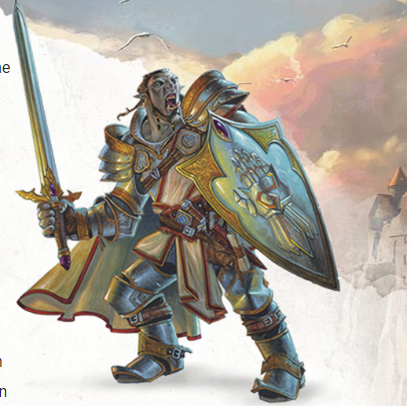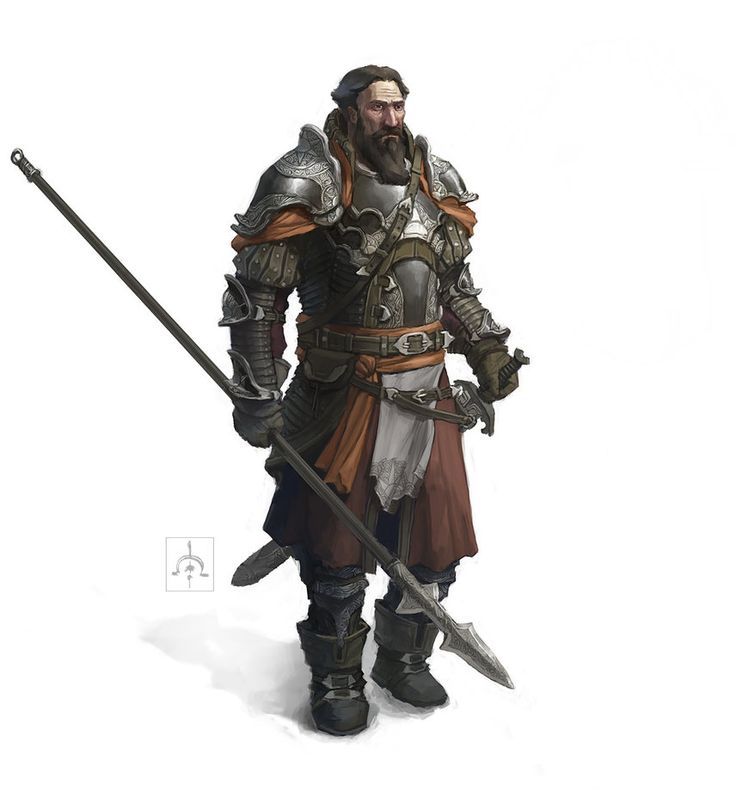To start with, the Paladin 5e outright most elevated detail will be either quality or adroitness, without any exemptions; paladins are a military-based class above all else. The main inquiry is which detail players need to depend on for their battle abilities: players intrigued by artfulness weapons should pick aptitude, while any others should choose quality.
Third-generally significant and the last detail that completely can’t be ignored in a solid form is the constitution. Since it decides hit focuses and a character’s strength, it’ll never be a dump detail for any class- – and paladins, as both skirmish warriors who need loads of hit focuses and spellcasters who may make visit fixation checks, this will without a doubt be a detail that the paladin will depend on constantly.
Check also: Dnd 5e Classes
Table of Contents
Paladin 5e

To become paladin, that character must make a solemn vow, and this vow turns into the reason for all the paladin’s particular capacities – at the end of the day, their subclass. The accessible paladin subclasses are as of now the promise of commitment, the way of the people of old, the pledge of retribution, the vow of the crown, the vow of victory, the vow of recovery, lastly, the oathbreaker.
Hit Points
- Hit Dice: 1d10 per Paladin level
- Hit Points at 1st Level: 10 + your Constitution modifier
- Hit Points at Higher Levels: 1d10 (or 6) + your Constitution modifier per Paladin level after 1st
The Paladin table shows what number of spell openings you need to cast your spells. To cast one of your paladin spells of first level or higher, you should exhaust an opening of the spell’s level or higher. You recover all consumed spell spaces when you finish a long rest.
In the event that you are a fifth level paladin, you have four first level and two-second level spell spaces. With a Charisma of 14, your rundown of arranged spells can incorporate four spells of the first or second level, in any blend. In the event that you set up the first level spell Cure Wounds, you can cast it utilizing a first level or a second-level space. Throwing the spell doesn’t expel it from your rundown of arranged spells.
Starting Proficiencies

The Paladin 5e is a heavenly knight, crusading for the sake of good and request, and is a perfect spell caster. By definition and game limitation, Paladins are consistent with the ‘Legal Good’ arrangement in D&D’s first third versions. The fourth release permits the Paladin to coordinate their divinity’s arrangement.
- Armor: Light Armor, Medium Armor, Heavy Armor, Shields
- Weapons: Simple Weapons, Martial Weapons
- Tools: none
- Saving Throws: Wisdom, Charisma
- Skills: Choose two from Athletics, Insight, Intimidation, Medicine, Persuasion, and Religion
Starting Equipment
- (a) a martial weapon and a shield or (b) two Martial Weapons
- (a) five javelins or (b) any simple melee weapon
- (a) a Priest’s Pack or (b) an Explorer’s Pack
- Chain Mail and a holy Symbol
The Paladin is a boss of equity and destroyer of insidiousness ensured and reinforced by a variety of awesome forces. The vast majority of these forces identify with giving advantages to those around the Paladin. These incorporate mending and relieving of ailment, a spirit in battle, and turning of the undead. The vast majority of the capacities are like however of a lower level than the priest’s capacities.
This permitted Paladins of different divine beings that were of an arrangement other than Lawful Good. All Paladins had a code or set of decides that must be followed but since of the distinctions in perspective between the arrangements the standards overseeing conduct changed from request to arrange. The Paladin is a contender class with uplifted obstruction against enchantment assaults at the expense of somewhat less military capability than a genuine Warrior.
| Level | Proficiency Bonus | Features | Spell Slots per Spell Level |
||||
|---|---|---|---|---|---|---|---|
| 1st | 2nd | 3rd | 4th | 5th | |||
| 1st | +2 | Divine Sense, Lay on Hands | - | - | - | - | - |
| 2nd | +2 | Ability Score Improvement | 2 | - | - | - | - |
| 3rd | +2 | Divine Health, Sacred Oath | 3 | - | - | - | - |
| 4th | +2 | Ability Score Improvement | 3 | - | - | - | - |
| 5th | +3 | Extra Attack | 4 | 2 | - | - | - |
| 6th | +3 | Protection | 4 | 2 | - | - | - |
| 7th | +3 | Sacred Oath feature | 4 | 3 | - | - | - |
| 8th | +3 | Ability Score Improvement | 4 | 3 | - | - | - |
| 9th | +4 | - | 4 | 3 | 2 | - | - |
| 10th | +4 | Aura of Courage | 4 | 3 | 2 | - | - |
| 11th | +4 | Improved Divine Smite | 4 | 3 | 3 | - | - |
| 12th | +4 | Ability Score Improvement | 4 | 3 | 3 | - | - |
| 13th | +5 | - | 4 | 3 | 3 | 1 | - |
| 14th | +5 | Cleansing Touch | 4 | 3 | 3 | 1 | - |
| 15th | +5 | Sacred Oath feature | 4 | 3 | 3 | 2 | - |
| 16th | +5 | Ability Score Improvement | 4 | 3 | 3 | 2 | - |
| 17th | +6 | - | 4 | 3 | 3 | 3 | 1 |
| 18th | +6 | Aura improvements | 4 | 3 | 3 | 3 | 1 |
| 19th | +6 | Ability Score Improvement | 4 | 3 | 3 | 3 | 2 |
| 20th | +6 | Sacred Oath feature | 4 | 3 | 3 | 3 | 2 |
An individual can possibly turn into a Paladin when the individual is conceded the status by another Paladin. This typically happens as a discourse and the passing on of the supporting Paladin’s sword. Just a unique Paladin sword may eject into blue fire.
Check also: D&D 5e Player’s Handbook PDF Full